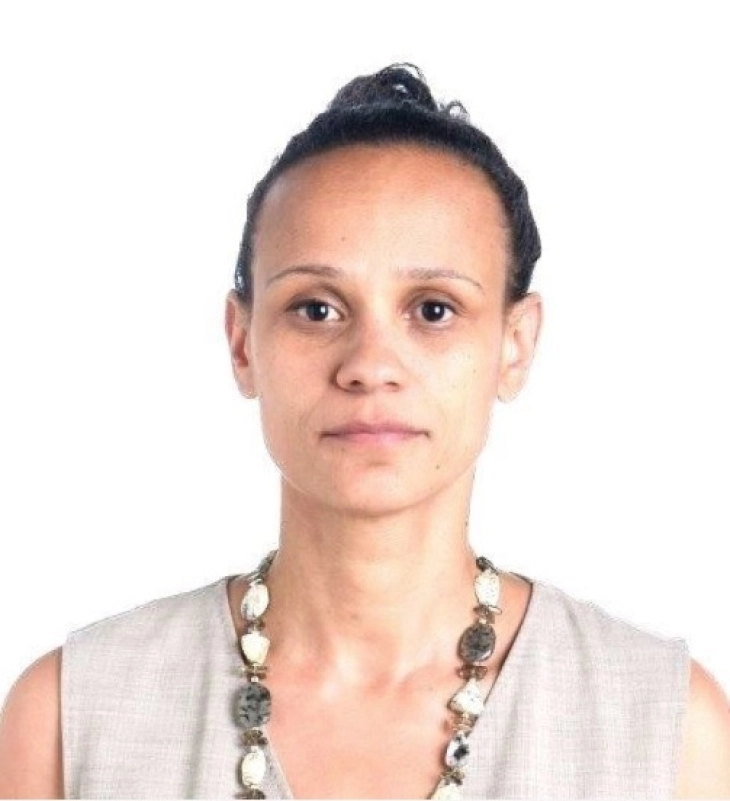IMF Mission Chief: New gov’t sets good goals, their implementation remains to be seen
- The government has set good goals, but we need to see their implementation – whether capital spending will increase and current expenses will decrease. So far, we are still seeing salaries and pensions rising, and that needs to be managed, said Annette Kyobe, IMF Mission Chief to Republic of North Macedonia.

Skopje, 31 October 2024 (MIA) – The government has set good goals, but we need to see their implementation – whether capital spending will increase and current expenses will decrease. So far, we are still seeing salaries and pensions rising, and that needs to be managed, said Annette Kyobe, IMF Mission Chief to Republic of North Macedonia.
“The promise is good, the right goal and right priority have been set – to increase capital expenditures over current expenditures. Of course, this needs to be accompanied by all the necessary steps to ensure efficient spending, meaning effective management of public funds, eliminating corruption and selecting projects that will have the greatest impact on growth,” Kyobe said in an interview with Sitel TV on Thursday.
She underscores that it is not only important to increase capital investments, but also to prioritize well-prepared and carefully selected projects.
“At this point we can talk about the goal of increasing capital expenditures. It is a good goal, but the devil is in the details – in how these projects will be carried out and which ones will be selected. It would be valuable to see the completion of Corridor 8 and 10d, as well as the Kichevo – Ohrid highway, as they are costly projects, and taxpayers deserve to see quality infrastructure as a result,” Kyobe said.
According to her, a linear increase in pensions for all pensioners is likely not the most appropriate step for managing poverty. Instead, she suggests targeting pensioners in lower-income brackets rather than those with the highest earnings, noting that the country “spends” more on pensions than its neighbours.
Salary and pension increases must be rule-based. Both we and the World Bank, as institutions, expect the authorities to return rule-based system, Kyobe said.
She noted that there is a general collective agreement that specifies how salaries should increase in different sectors.
“You must not allow salaries to increase quicker than productivity, otherwise North Macedonia’s overall production will become uncompetitive. Paying your workers more than those in other Western Balkan countries will lead to higher prices for your goods in the international market. This means you lose competitiveness,” Kyobe underlined.
“Although I accept the arguments that salaries need to rise due to inflation and the lost purchasing power of citizens,” she adds, “there are other factors that need to be considered. The best way to assist vulnerable households is to target them specifically instead of implementing measures for the entire population,” Kyobe said.
According to IMF analyses, she added, since 2015 the country has significantly lagged behind its regional countries.
“The gross domestic product (GDP) is about 10 percent lower compared to the pre-pandemic period. This is considerably lower than other Western Balkan countries, where the current GDP rates may be only 4 to 5 percent below those prior to the COVID pandemic, while in the EU, current level are approximately 2 percent lower than before the global crisis,” Kyobe said.
“Part of the reasons are structural, North Macedonia has a more open economy focused on production, unlike other countries in the region that immediately felt an improvement in their economic conditions as soon as tourism returned, for example. This is not the case for North Macedonia, which is more production-oriented and much more integrated into the Eurozone supply chain. Therefore, with the slowdown in the Eurozone, North Macedonia had to experience a slowdown as well,” Kyobe noted.
"However," she adds, "there are also other factors affecting the situation, such as the business climate, corruption, administrative barriers, regulatory changes, and bureaucracy."
“All of these are issues that investors identify as weaknesses in the system in North Macedonia, placing it in a less favourable position compared to other countries in the region,” she stressed.
Regarding the significantly lowered growth forecasts from the IMF, she states that they are due to structural issues that are slowing down the growth of the Macedonian economy.
“North Macedonia is far more affected by emigration compared to other countries in the region, and with such poor growth performance, this impacts fiscal aggregates. In terms of fiscal balance, North Macedonia has significantly poorer results than regional countries, with a much higher fiscal deficit. As a result, there has also been a significant increase in public debt. From 2018 to 2024, public debt has risen by 15 percentage points, unlike Montenegro and Albania, where there has even been a decrease in public debt during this period,” Kyobe noted.
The IMF, as she notes, has detected that the problem lies in the composition of expenditures.
“North Macedonia spends much more on unproductive items compared to capital expenditures. When I say unproductive, I mean salaries, allowances, and pensions, which are significantly higher as a percentage of GDP compared to other countries in the region that allocate a higher percentage of their revenue to capital expenditures and investments. I believe these are the factors that differentiate the country from the others. It's not that expenditures are significantly higher than in other countries, but rather that a much larger portion is devoted to current expenditures as opposed to capital projects and investments,” Kyobe said in the interview with Sitel TV.
Photo: screenshot







